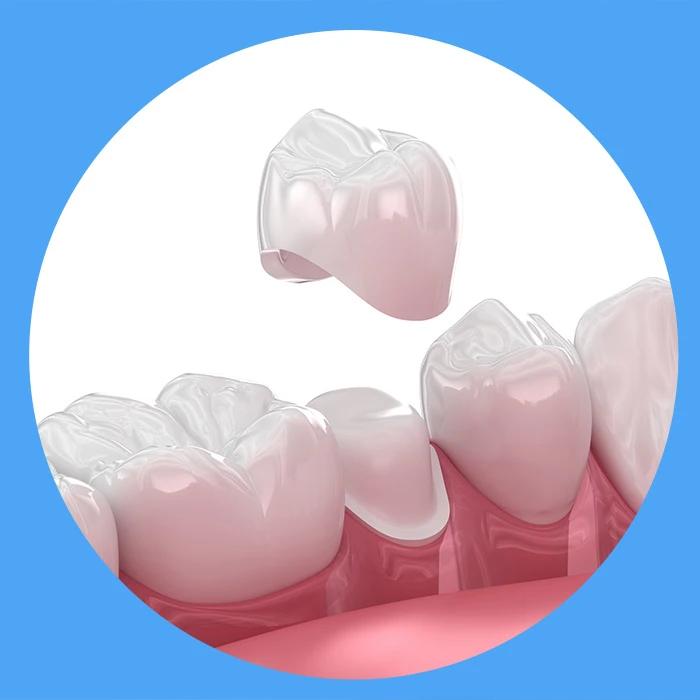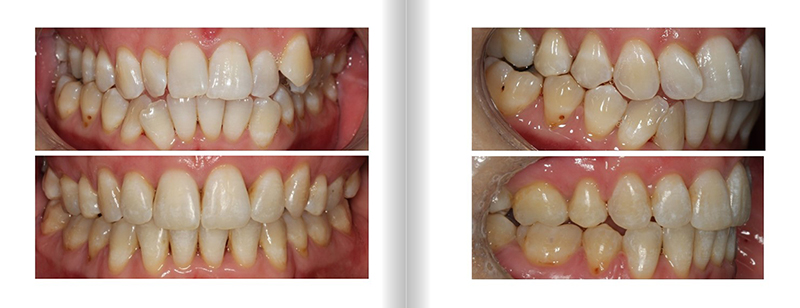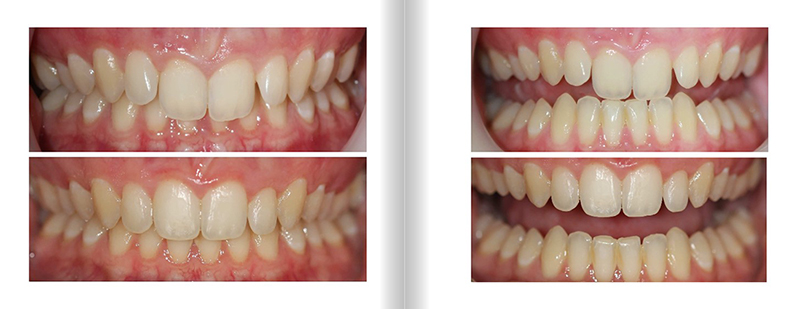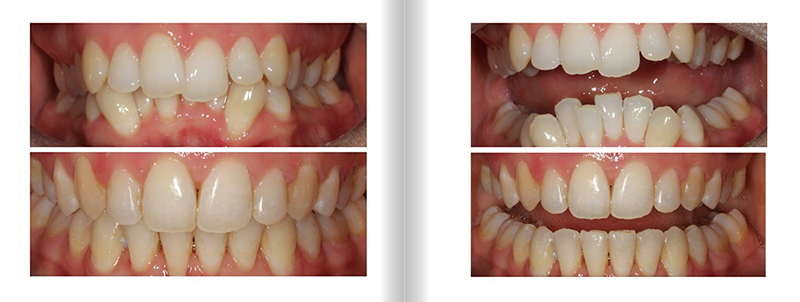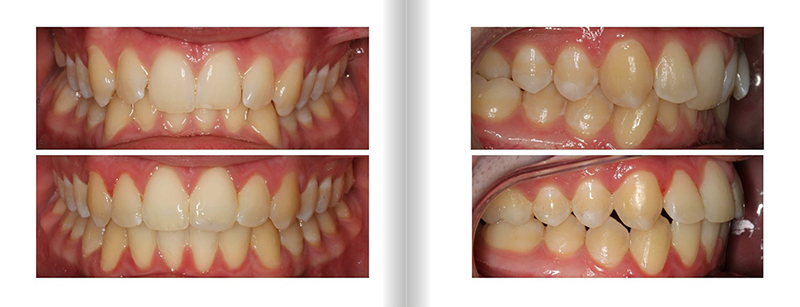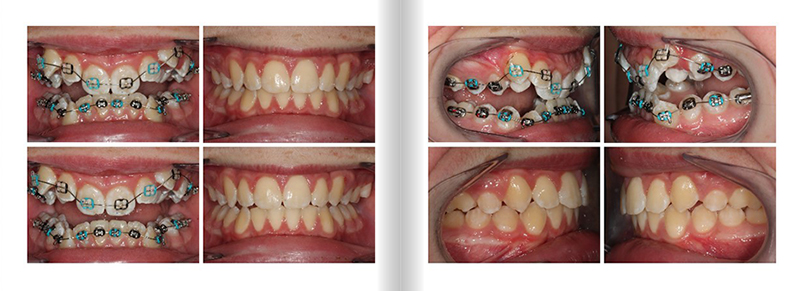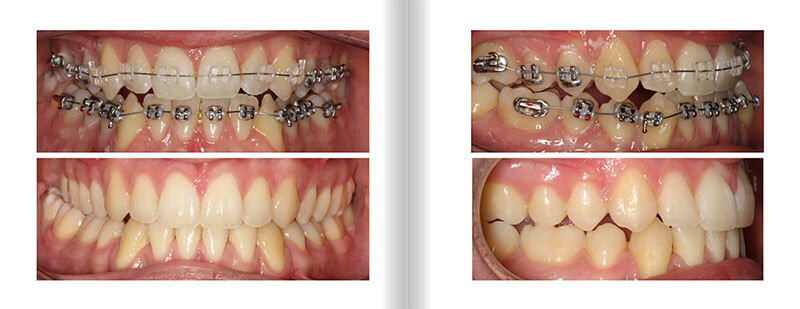What are dental crowns?


Before and After Dental Crown
Dental crowns are custom-fitted restorative devices designed to completely cover or “cap” a damaged tooth or dental implant. Made from materials like porcelain, ceramic, metal, or a combination of these, crowns are used to restore a tooth’s shape, size, strength, and appearance.
They are recommended for teeth that have been weakened by decay, cracks, or large fillings, or for covering misshapen or severely discoloured teeth.
Crowns can also be used to complete dental procedures such as bridges, root canals, or dental implants, providing a functional and aesthetic solution to a variety of dental issues. By encasing the entire visible portion of the tooth, a crown effectively protects and strengthens the tooth structure while enhancing your smile’s natural appearance.
Limited Time Offer!
Grab a FREE orthodontic consultation with Dr. Gaffey.
Special offer has been extended to 13th April 2025!
Call 08 82716233 now!
Available dental crown procedure in Adelaide
The procedure for getting a dental crown typically involves two main visits to the dentist. During the first visit, the tooth is prepared by removing any decay and reshaping it under local anaesthesia to make space for the crown.
A 3D scan with a camera rather than the old method of impression materials of the tooth is utilised to custom-design the crown, matching the tooth’s shape and colour.
A temporary crown is placed to protect the tooth while the permanent crown is being made.
On the second visit, the temporary crown is removed, and the permanent crown is adjusted as needed and then cemented into place, restoring the tooth’s function and appearance.



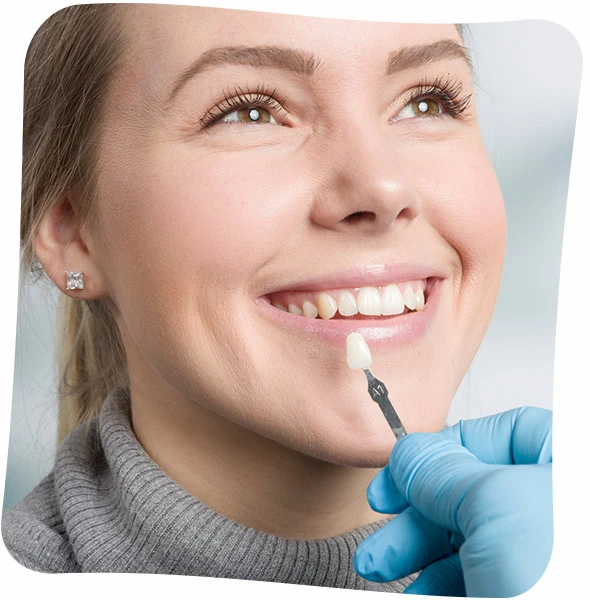
Dental Crowns Funding Options
Dr Angela and Dr Jack Gaffey believe that high-quality dental crown treatments should be accessible to everyone, regardless of financial circumstances. That’s why we’ve established a range of flexible payment options designed to accommodate different budgets.
Whether you’re paying with cash, or credit cards, we ensure a smooth transaction process. For dental crown treatments not entirely covered by insurance, we collaborate with Denticare, and we also offer No Deposit Payment Plans like Humm to offer manageable payment plans with low monthly instalments, bringing your necessary treatment within reach.
Additionally, our efficient insurance claim process, supported by Hicaps, streamlines the rebate deduction directly at the time of service. Should you have any inquiries about financing your dental crown treatment, Helen or Di at our front desk are more than willing to assist and guide you through your options.
Bring Back Your Smile in Six Months
Six Month Smiles® at Cumberland Dental offers a swift and cost-effective solution to traditional braces or costly porcelain veneers, allowing you to achieve a straight, confident smile in just six months. This innovative treatment aligns with routine dental visits, significantly enhancing your self-esteem and social prospects without the lengthy process associated with conventional orthodontic methods.
As the exclusive provider in South Australia certified by Six Month Smiles®, Cumberland Dental empowers you with the opportunity to transform your smile affordably. With flexible payment plans beginning at $41 per week, achieving your dream smile is more accessible than ever. Start your journey towards a radiant smile today and experience the life-changing benefits of a beautiful, confident smile in just half a year.


Dental Crown FAQs
What is a dental crown?
A dental crown is a custom-made restoration that covers the entire surface of a tooth above the gum line, restoring its shape, size, strength, and appearance. Crowns are used for teeth that are damaged, decayed, or cosmetically unsatisfactory.
What materials are dental crowns made from?
Crowns can be made from various materials, including porcelain, ceramic, metal alloys, composite resin, or a combination of these. Porcelain and ceramic crowns are popular for their natural appearance.
How long does a dental crown last?
With proper care, dental crowns can last between 5 to 15 years or longer. The lifespan depends on the material, the crown’s location in the mouth, and the individual’s oral hygiene and habits.
Is getting a dental crown painful?
The procedure for placing a crown is typically performed with local anaesthesia, so you shouldn’t feel pain during the process. Some sensitivity or discomfort may occur after the anaesthesia wears off but is usually mild.
How do I care for my dental crown?
Caring for a dental crown involves the same practices as caring for your natural teeth: regular brushing, flossing, and dental check-ups. Avoiding hard foods and not using your teeth as tools can also help extend the life of your crown.


